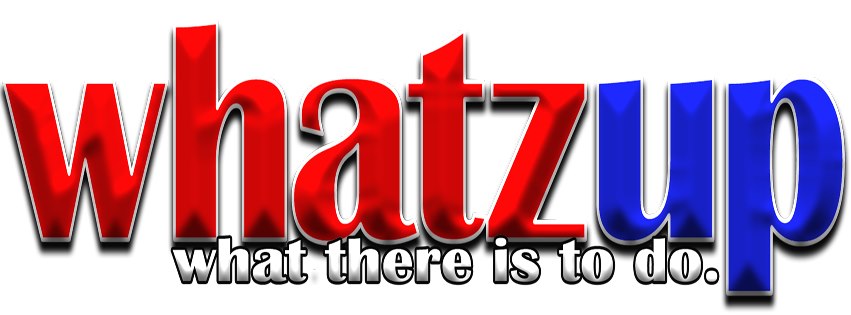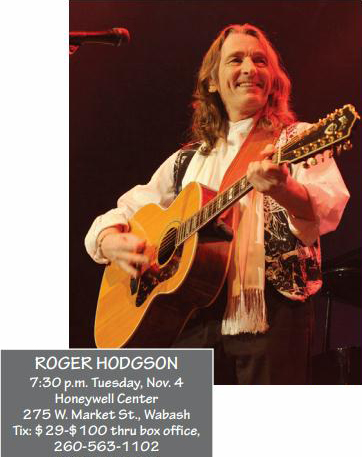
Roger Hodgson:
Accepting the Limelight
By Mark Hunter
Don’t feel bad if the name “Roger
Hodgson” doesn’t mean anything to you. As
a founding member and main songwriter for
the 1970s progressive rock band Supertramp,
it was Hodgson’s idea to disappear into the
group. It was a noble thought.
Bands are made up of individual personalities, and it was not
normal then (it still isn't) to avoid promoting those personalities. Even as
Supertramp grew to be one of the biggest bands in the world, the names of
the individual members weren't exactly household. But anybody who was
listening to the radio between 1974 and 1983 knew the songs. "Dreamer,"
"School," "Give a Little Bit" and "The Logical Song," to name a few, were
instantly recognizable as Supertramp songs.
Hodgson wrote eight of Supertramp's 10 biggest hits, but only diehard
fans knew who he was. Hodgson, who left Supertramp in 1983, has spent a good
part of the last 30 years trying to make a name for himself.
Hodgson and his band bring their Breakfast in America tour to the
Honeywell Center in Wabash on Tuesday, November 4 at 7:30 p.m.
Hodgson's wanting anonymity within Supertramp grew from his desire to let
the songs speak for themselves. And they did. Drawing in on personal
experience, Hodgson wrote from his heart about where those experiences took
him emotionally and spiritually.
Hodgson grew up in Portsmouth, England, and when he was
12 his parents divorced. His father left behind an acoustic guitar which
Hodgson immediately began playing with. When he went to boarding school, a
teacher taught him some chords, and within a year Hodgson was performing
with his own songs.
Shortly after he left school, Hodgson recorded a song called "Mr.
Boyd" with a group of session players that included a pianist named Reginald
Dwight, who later became known as Elton John. Hodgson later met Rick Davies,
and the pair began writing songs and eventually formed Supertramp. After
an eponymous release, Hodgson started writing songs on his own. He would
write all the parts and arrangements before bringing them to the rest of the
band. Their next record, Indelibly Stamped, garnered about as much response
as their first, which was very little. Then in 1974 Crime of the Century
came out, and the song "Dreamer" became a hit in the U.K., the U.S. and
Canada. The B-side of "Dreamer" was "Bloody Well Right" which became a
bigger hit in the states. The band went on to record Crisis, What Crisis?,
Even in the Quietest Moments, Breakfast in America and Famous Last Words,
all of which (except for Crisis) were propelled to the tops of the charts by
Hodgson-penned tunes.
But by the end of the tour for Famous Last Words in 1983, Hodgson had
reached a decision. Rather than continue touring and recording, he decided
to drop out of the band and leave Los Angeles to live with his young family
in Northern California. Hodgson in 2010 told a German interviewer that he
didn't want to be one of those guys who gave up on his family for growing
personal fame, which didn't seem to interest him in the first place.
From early in his songwriting career, Hodgson had been searching for
meaning in his life. He had nurtured a spiritual bent in his songwriting all
along. In "The Logical Song" he pleaded someone to "tell me who I am." "Even
in the Quietest Moments" found him singing "I wish I knew / what I had to
do." In moving away from fame toward family, nature and spirituality, he
found an answer. But he didn't stop writing songs.
In 1984 he released his first solo record, In the Eye of the Storm. A
reviewer at Allmusic.com called the record, on which Hodgson played every
instrument, "easily the best synthesis of pop and progressive rock since,
well, prime Supertramp."
His next album, Hai Hai, came in 1987 and was poorly received. A
decidedly new turn toward the pop styles of the 80s. Hai Hai marked a low
point in Hodgson's career, a nadir made worse by a fall in which he broke
both of his wrists. Following surgery his doctors told him he'd never play
guitar again. His doctors were wrong.
After nursing himself back to health, Hodgson recorded 2000's Open the
Door. In 2001, he went on tour with Ringo Starr's All-Starr Band. By 2004
Hodgson was back to touring on his own, and he hasn't stopped. His current
shows include all of the hit songs he wrote while with Supertramp (in an
agreement with Davies, Hodgson retained the rights to his songs while the
name Supertramp and the songs Davies wrote remain with him) as well as a
growing number of his solo songs.
Hodgson's voice and playing are as strong as ever. And he's achieving the
name recognition he shunned for years. His songs and his voice are his own,
and he's making the most of them.
Click here for the original article:
Whatzup
Magazine
|


